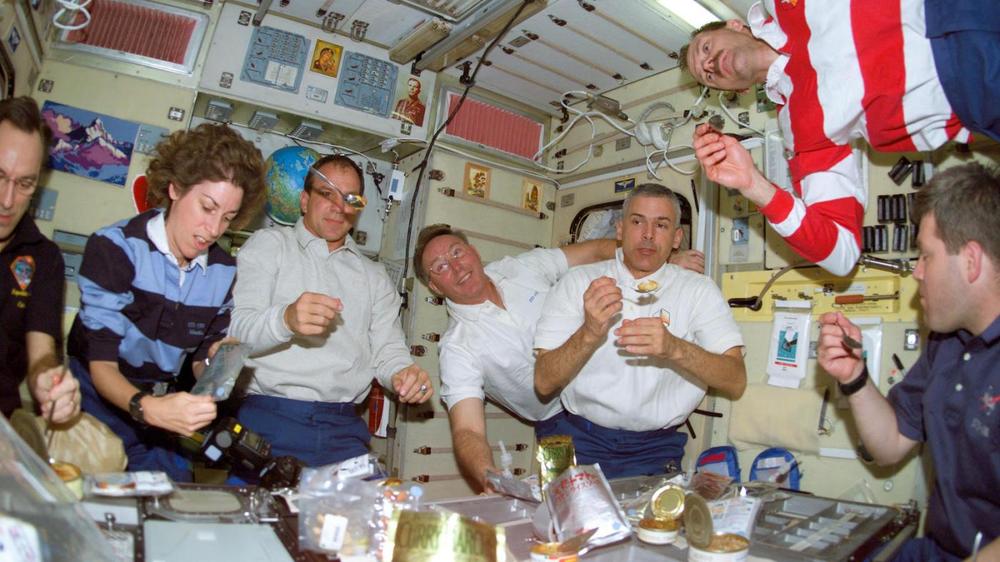The current menu of space-friendly foods uses processing and water-reduction strategies to make these meals shelf stable. For example, a shrimp cocktail, mashed potatoes, and strawberries can be freeze dried; beef stew, candied yams, and brown rice can be thermostabilized; beef steak and turkey can be irradiated; and brownies, bread products, and beverage powders can be brought up in a low-moisture or dried form.
As tasty as this feast sounds, this packaged food system does not meet the five-year shelf life required for a Mars mission, nor will it feed generations there in the years to come. How will space food therefore have to change if we are ever to colonize other planets?
Using existing space technologies, it will take up to 32 months to travel to Mars. How can you feed a crew for that three-year trip?










Comments are closed.